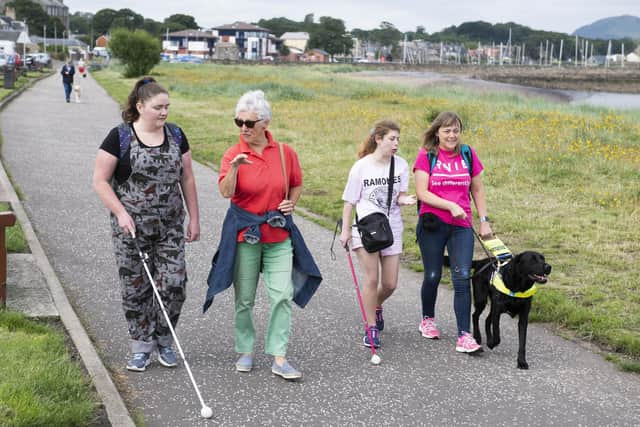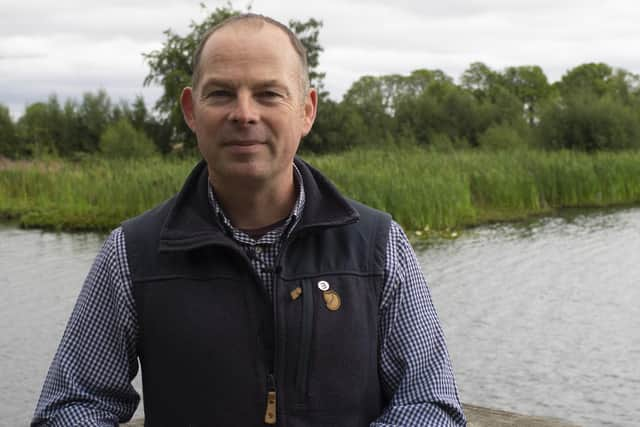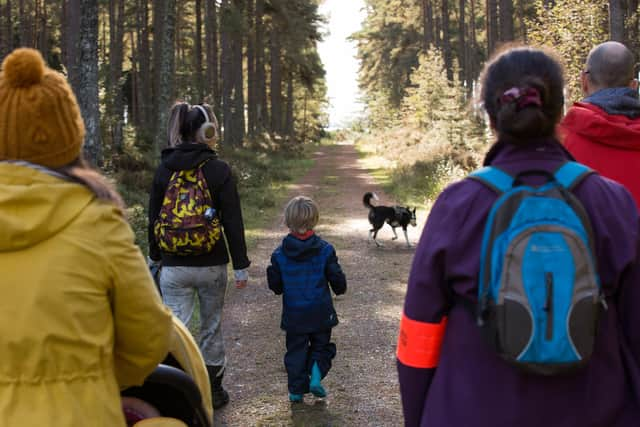Covid Scotland: Walking charity sees rise in demand through pandemic
Charity Paths for All has also trained 1,500 new volunteers since pandemic restrictions eased.
Ahead of mental health awareness week, and in national walking month, Paths for All chief executive Kevin Lafferty said walking offers physical and mental benefits, is accessible to all and is kind to the planet.
Advertisement
Hide AdAdvertisement
Hide AdIt comes after a debate in the Scottish Parliament last week to mark national walking month, in which minister for public health Maree Todd said walking has the potential to combat Covid-related deconditioning.
Some older or more vulnerable people have seen a reduction in their fitness and other abilities as a result of being less active during the pandemic.
Mr Lafferty also believes walking offers a potential solution to this. He wants Scotland to become a “walking nation”, and to encourage more people to take up the activity.
Paths for All currently runs over 650 ‘health walks’ a week. All are welcome to attend these free walks, which are guided by volunteers and take a gentle pace.


The aim is for people to socialise in their local community, while gaining fitness and confidence.
“It's local people supporting local people, and it really is quite powerful when you see the difference it has made to people,” said Mr Lafferty.
Walking is a “perfect exercise”, he said.
"It's really inclusive and accessible for everyone, you don't need any specialised equipment to do it.


“You don't have to take a gym membership, it’s free and it's available right from your doorstep.
Advertisement
Hide AdAdvertisement
Hide Ad“Physiologically as well, our bodies are designed to move and walking is a perfect form of movement and activity for us and we know that walking boosts the immune system and reduces the likelihood of a wide range of chronic diseases.
“And during the pandemic we have seen the importance it has played in relation to people's mental health and wellbeing.
“That rise in the number of people walking and visiting the outdoors is important because some people have experienced physical deconditioning, and what we're trying to do by promoting walking is to support people to stay active and to stay independent for longer, and take pressure off the NHS.


“In terms of tackling inequality, walking is really good because everybody can take part. We have buggy walks, dementia-friendly walks, and walks which aim to connect people who are isolated in their communities.
“It’s really a network and a form of support.”
More needs to be done to make walking more accessible, Mr Lafferty said. Paths for All want to see more funding made available for the maintenance, promotion and lighting of paths, to make sure everyone has access to them and feels safe using them.
"Some people live with really good green space and path networks on their doorstep. But not everyone has access to the same quality of spaces,” he said.
“That's why we need further investment to improve access to green space, and improve the maintenance and the quality of the walking and path networks so that people can stay local and value what's on their doorstep.”
Comments
Want to join the conversation? Please or to comment on this article.
